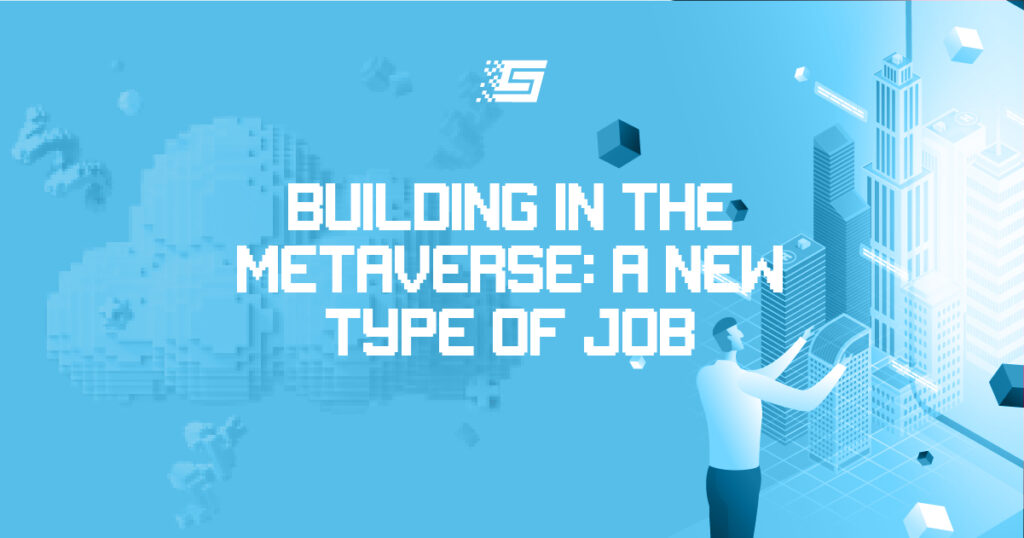Healthcare In The Metaverse
The basic idea of the metaverse is quite simple – to allow people who are physically far away to feel close. However, the technology behind it is a bit more complex. The underlying infrastructure includes blockchain technology, 5 and 6G, VR and AR, Internet of Things, etc.
A number of applications are already established for the metaverse, and they vary greatly. For example, an alternative economy (or creator economy) allows users to create and trade virtual assets for a desired value and to benefit from full ownership and interoperability. Participants in the metaverse can also view and tour real properties or purchase virtual land. Transactions within this purely intangible space are made via digital currencies (cryptocurrencies), smart contracts, and virtual wallets.
The metaverse provides new and alternative ways for users to experience products and services, bringing a multitude of business opportunities for inventive entrepreneurs. It is set to not only impact the way we create, design, and experience products and services but could also have especially powerful and practical implications for the ways businesses manage their operations and communicate with their target audiences.
Communication platforms like Zoom and Teams, which have become an inseparable part of our day-to-day work (for better or worse), will soon become a thing of the past and be replaced by hologram-based real-time communication within the metaverse. It would entail communicating and interacting directly with a hologram of a person, similar to how you would in the physical world.
The Startups Changing How We Experience Healthcare
In its course of altering the relationship between people and technology, the metaverse is set to forever change one of the most fundamental pillars of our existence and well-being – healthcare. There’s a notable increase in startups working towards augmenting services on the stage of digital healthcare, and the prospects are more than intriguing.
Although not yet widespread, there are some early signs of groundbreaking healthcare innovation with the help of the metaverse. Last year nearly $200 bln was invested in digital health startups in the US. These startups are using technologies like AR/VR and gamification to create immersive healthcare services that will serve educational, therapeutic, and assistive purposes. In the metaverse, patients can experience amplified treatments in specialized therapeutic environments. Medical professionals such as surgeons could plan for operations and even complete minimally invasive surgery.
In simple terms, gamification refers to the application of gaming tools within non-gaming environments to make services and processes more immersive, interactive, and entertaining.
In healthcare, gamification has a central goal of enabling customer-centric services and highly personalized therapeutic experiences. Introducing gamification into treatments can motivate patients to follow their treatment programs by incorporating challenges and rewards. It might be something as simple as entering a step-counting competition. Considering the potential for creativity and inventiveness in this niche market, there are already some notable startups that are coming up with ways to gamify healthcare processes. For instance, Icelandic startup Sidekick, which raised $55 mln series B specializes in the creation of gamified digital therapeutic solutions in multiple areas, ranging from diabetes to ulcerative colitis and smoking cessation. The platform combines evidence-based clinical approaches with behavioral economics and gamification to help global customers expand their therapy reach. Another good example is Austrian physiotherapy startup Enlivio, a teletherapy platform solution that motivates patients to train independently through gamification.
Medical specialists have discovered that they can diagnose minor conditions and carry out routine consultations just as effectively, if not more, via a video call as in-person. This will certainly persist in the metaverse. Tele-examinations can be enhanced with the help of VR and AR technologies which are already setting the way for new patient-doctor communication. With VR and AR technology, patients are no longer limited to being treated by particular specialists for a physical location, and they no longer need to meet with a specialist physically in order to receive support.
The company GuideCare is dedicated to holistic healthcare consulting. On the one hand, its experienced consultants provide expert advice to people facing health-related challenges that prevent them from leading independent and fulfilling lives. On the other hand, it supports Germany’s largest network of care consultants, where education and useful information are exchanged. GuideCare has recognized the huge potential of VR and AR technologies along with the metaverse for the healthcare and telemedicine industry. They have already mapped out their steps to becoming a prime provider of care consulting services beyond the physical space. By collaborating with universities, the startup will first adopt AR tools to allow consultants to experience the individual environment of the client through their own eyes. The customer might be suggested aids virtually, and documents could be created together. GuideCare will also enter the metaverse space by enabling robot-assisted consultations that would take place entirely virtually.
The metaverse is gaining traction in the healthcare industry, which points towards increased investment opportunities and intensified research and development efforts. Considering how fast these novel technological solutions can advance, only the most adaptable and innovative companies will be winners in the virtual space.
Related Areas Transforming
Sales And Marketing
The best way to describe the direction that the metaverse will drive sales and marketing activities is ‘immersive’. Advertising will undergo significant transformation as the shift from physical to digital takes place, taking the form of virtual billboards, potentially seen by millions of avatars (users) in real time. Brands will be able to improve customization of user experience at an unprecedented scale because of an increased number of data points and high accuracy of product targeting and positioning. Enhanced immersive marketing gives customers the chance to interact with brands and get a feeling about products or services before making a purchase.
Social Media
As the metaverse becomes more mainstream, social media will also transform. The functionality of social media platforms like Instagram, Facebook, and Tik Tok is currently limited to viewing 2D content on the user’s screen and interacting by liking, sharing, and commenting. As the metaverse enables users to be inside of the virtual space rather than just looking at it, social media will become immersive and support real-time interactions through the use of AR and VR. But ultimăately, it may eventually become obsolete.


